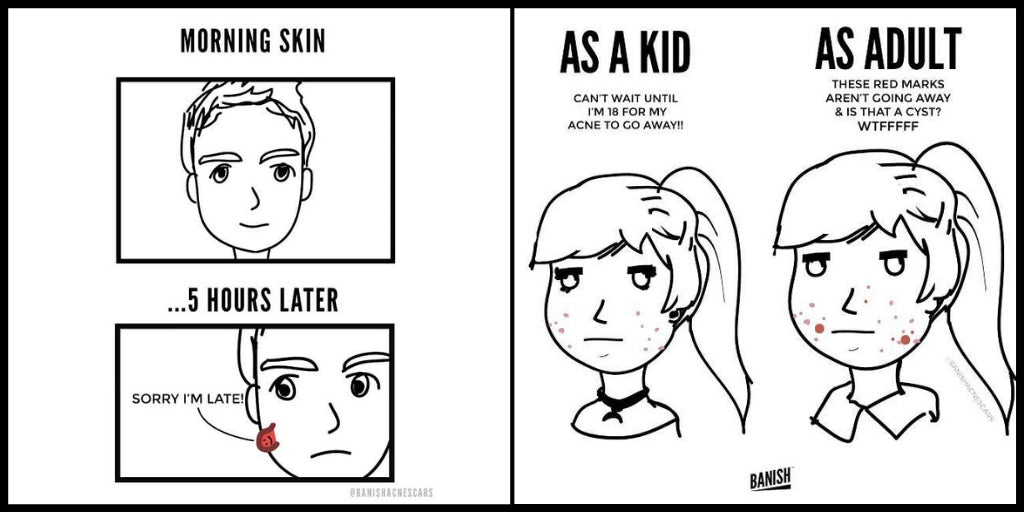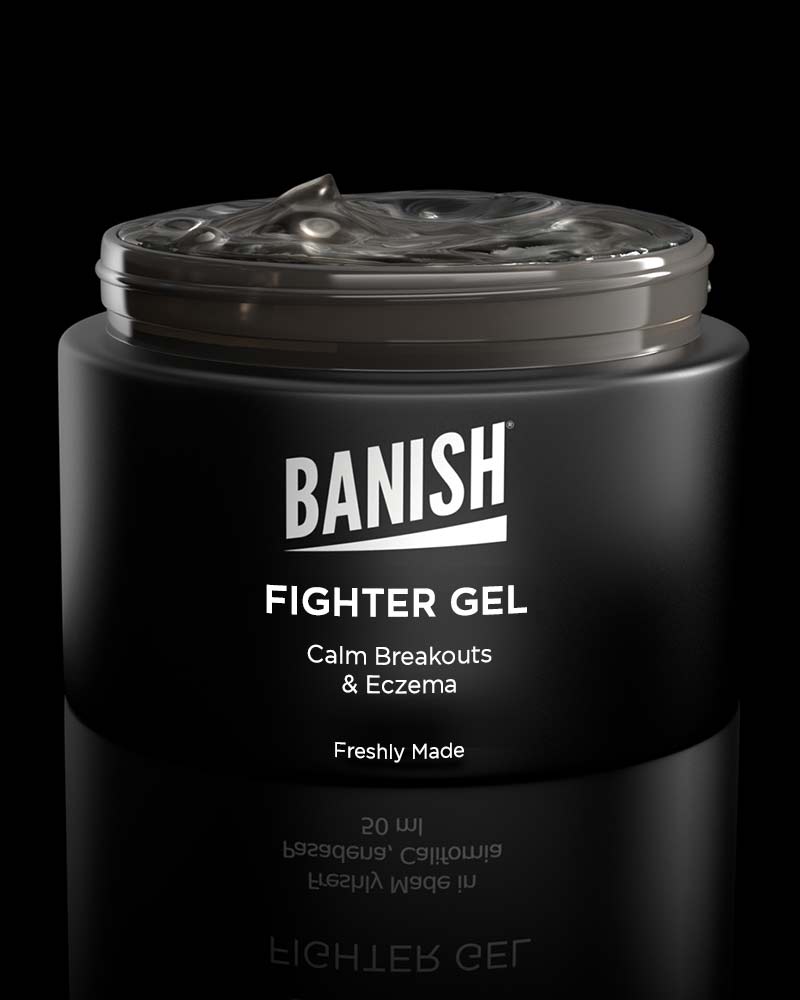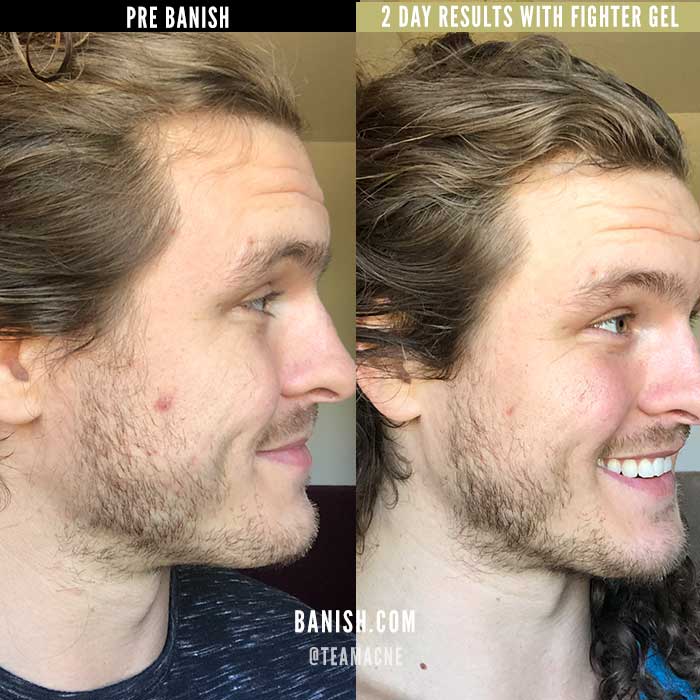By Kali Kushner
For me, it wasn’t the acne pimples that was the worst part of my ongoing acne journey, but rather the scars and discoloration that were left behind. When my skin was free from active acne, it felt smooth. But you can easily tell from the discoloration that a lot of pimples were present there; almost like a cemetery of pimples.
A few years ago, when my acne was at its worst and I failed miserably after trying just about every acne fighting product on the market, I decided it was time for Accutane. Six months later and my skin was the clearest it's ever been since my pre-teen days. Not a single pimple. Like everyone, I was terrified coming off of the drug - would my acne come back? Was it only temporary? What can I do to manage my results? And thus, my dermatologist prescribed me Retin A for acne in case it came back.
WHAT IS RETIN A?
Retin A, also known as Tretinoin, is a synthetic form of Vitamin A. It is a prescription cream that encourages skin cells to exfoliate and shed faster, clearing up acne, superficial scars, and even wrinkles. It's known to be great for anti-aging and revealing a clearer, brighter complexion.
I DIDN'T PURGE ON RETIN A
I did some research and came across a plethora of retin a micro gel 0.1% reviews about a prescribed medication called Retin A for acne. The reviews both excited and scared me at the same time. I was excited because I finally thought I had found the solution to getting rid of my acne scars. At the same time, I was scared because almost every reviewer of this medication expressed their experience of what is commonly referred to as the ‘purging’ phase.
This phase is when your skin starts to temporarily breakout a lot; but this indicates that the medication is doing its job, which is to remove the old outer skin layer and produce new skin cells. In the desperate situation that I was in.
About 15 days after my finished course of Accutane, I began using my prescription Retin A (cream form), at a .025 percent! At first, it seemed to work amazing, I had a love affair with Retin A. I used a small pea-sized amount every other night, gradually building up to full usage to every single night. I saw immediate results with my scarring and pores but because I didn't have any acne at the time (coming off of Accutane) my skin never purged.
In the initial stages of using Retin A, I started applying it to my face at night once every three days. I read that starting off slowly by applying it infrequently is a way to avoid the purging phase. I noticed that I didn’t get more pimples than I already had, but my skin got flakier and was a lot dryer. I had to combat this by using a lot more moisturizer after I would apply the medication.
For months it was great, my skin was completely clear, and if it did flare up with little whiteheads the Retin A would calm down my breakouts in as little as a day or two. However, after about 8 months my skin was so irritated. No matter how much moisturizer I slathered on, my skin was non-stop flaking off and sensitive to even the smallest everyday things so using Retin A for acne was starting to sensitive my skin.
My Side Effects From Retin-A
Retin A made my face more sensitive and ‘raw’. I wasn’t too happy with what it was doing to my face in the initial phase. But I was persistent.
For example, I went ice skating for a few hours once and ended up with a windburn, and it wasn't even THAT cold! And another (basically everyday) activity that really irritated my skin was kissing my husband, which obviously wasn’t something I could just quit doing. Beard or no beard, it was like sandpaper against my skin and would turn my skin bright red, cause excessive irritation, and make my skin break out in little bumps that resemble acne and would last for about a week or more.
What I learned at this point were some tips on how to use Retin A for acne. After washing your face, wait at least 20 minutes before applying Retin A to your face because if your face is not completely dry, Retin A will irritate your skin even more.
A little is better than more. Since Retin A is very potent, you don’t need to use a lot on your face for each application. A pea size is an ideal amount! Moisturize. Moisturize. Moisturize! Enough said.
I powered through irritation, dryness, and warmness a few months longer but, after 8 months it was no longer working; my cystic acne returned full force. I think, as with most skincare products I use, they work for a few months until my body decides to build up a resistance and generally becomes less responsive.
Is Retin-A Safe?
The bottom line is Retin-a or topical tretinoin is generally safe for most people to use. However, there is always going to be some people who won't be able to tolerate it or the side effects from it. There are times when retin-a may not be safe to use such as during pregnancy, if you have other skin conditions, or if you are also taking photosensitizing medication at the same time which your doctor will navigate with you. It's your personal choice if the pros of using retin-a to reduce acne will outweigh the possible side effects for you.
TOP 3 REASONS I STOPPED USING RETIN A FOR ACNE
While I didn't like the increased dryness and sensitivity, here are the main reasons I personally decided to stop using Retin-A
- Possible Higher Mortality Rate Among Smokers With Retin A during Trial In a Retin A trial against a placebo, it was found those who applied Retin A .01% topically once a day had a much higher mortality rate than those who did not. Although there is an association, there is not a direct cause that the tretinion caused the deaths. The median age group was 71 and the mortality rate increase seemed to be associated to those who are smokers, which we know smoking increases the mortality rate in general. I don't know about you, but if I don't have to use Retin A, then I'm ok with skipping it.
- Retin A interferes with your body’s ability to use natural sources of vitamin A. When vitamin A is ingested it turns it to retinoic acid and binds to our retinoid receptors which help with our eyesight, skin, brain, and our liver (among various other bodily functions). Retin A is already retinoic acid, meaning that once applied it binds directly with retinoid receptors which can interfere with many different bodily functions. Because our skin health is a window into how our body and mind is functioning, this suggests that the longer you use Retin A, the worse your results could get.
- Retin A isn’t a long term fix (or at least wasn’t for me). I got to the point where I realized that if I really wanted to treat my acne I needed to start looking at the root cause and treating it internally rather than relying on creams and lotions that only worked temporarily.
I Made The Decision To Try To Find The Internal Root Cause Of My Acne
After countless treatments only working temporarily (yes, even after Accutane my acne returned) I decided that Retin-A just wasn’t for me. It was only masking the issue like a Band-Aid, without addressing the root causes I truly felt that my acne would never fully heal.
It's not necessarily a bad thing, at the time I felt that I needed it for clear skin. It was a wonderful prescribed medication ONLY if you are persistent with it and boy it taught me a lot of patience! And there are certain days like birthdays or anniversaries where you just want clear skin, so it's great to have an option like Retin A to help you out with that.
But I didn't like relying on Retin A as a long-term solution. I couldn't see myself staying on it for years. Instead of relying on it to keep my acne at bay or treat existing pimples, I wanted to start working on prevention and permanently improving my skin through diet, exercise, natural skincare products, and my overall health in general.
Did you try Retin A for acne? Let me know your experience in the comments!


























Leave a comment
All comments are moderated before being published.
This site is protected by hCaptcha and the hCaptcha Privacy Policy and Terms of Service apply.